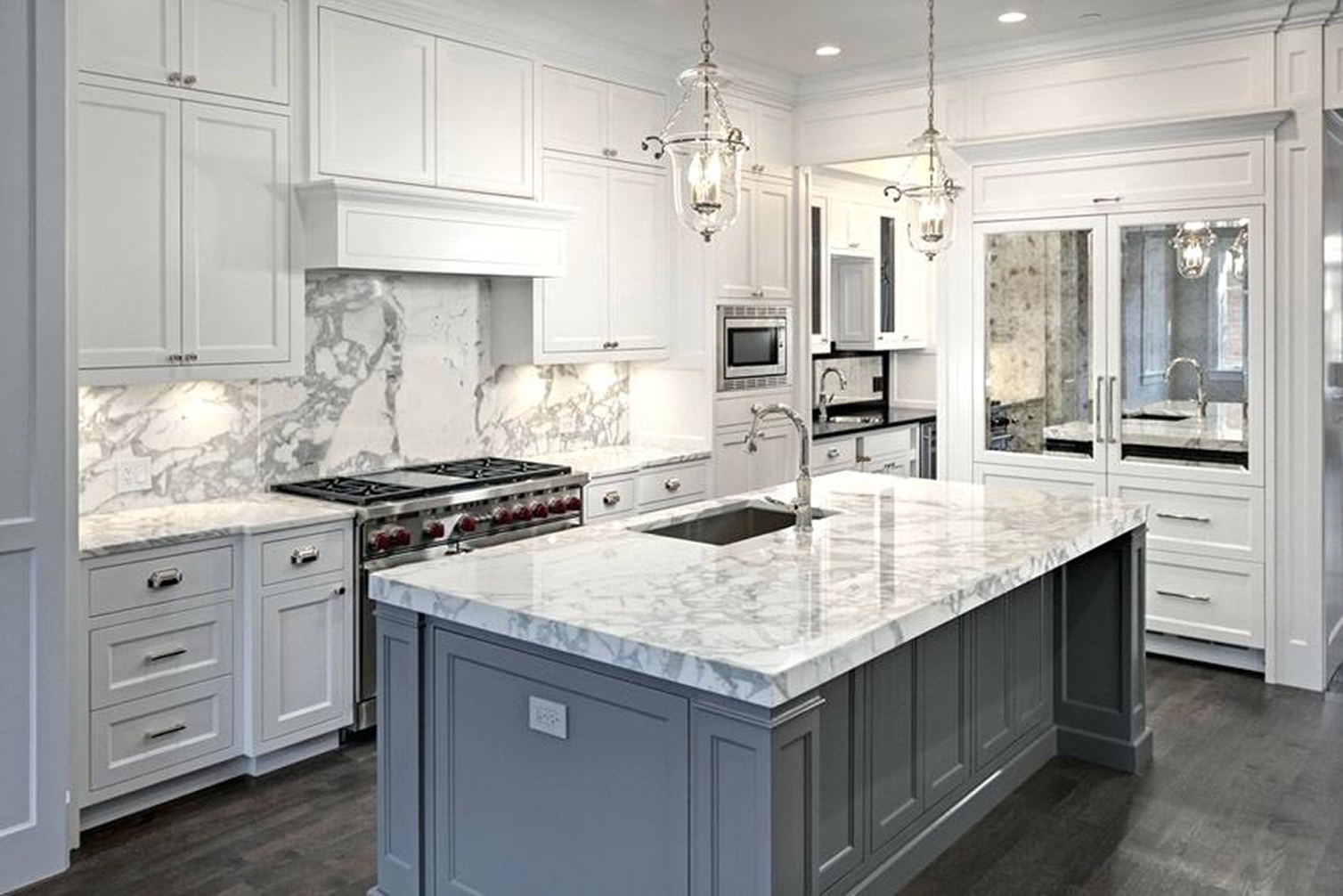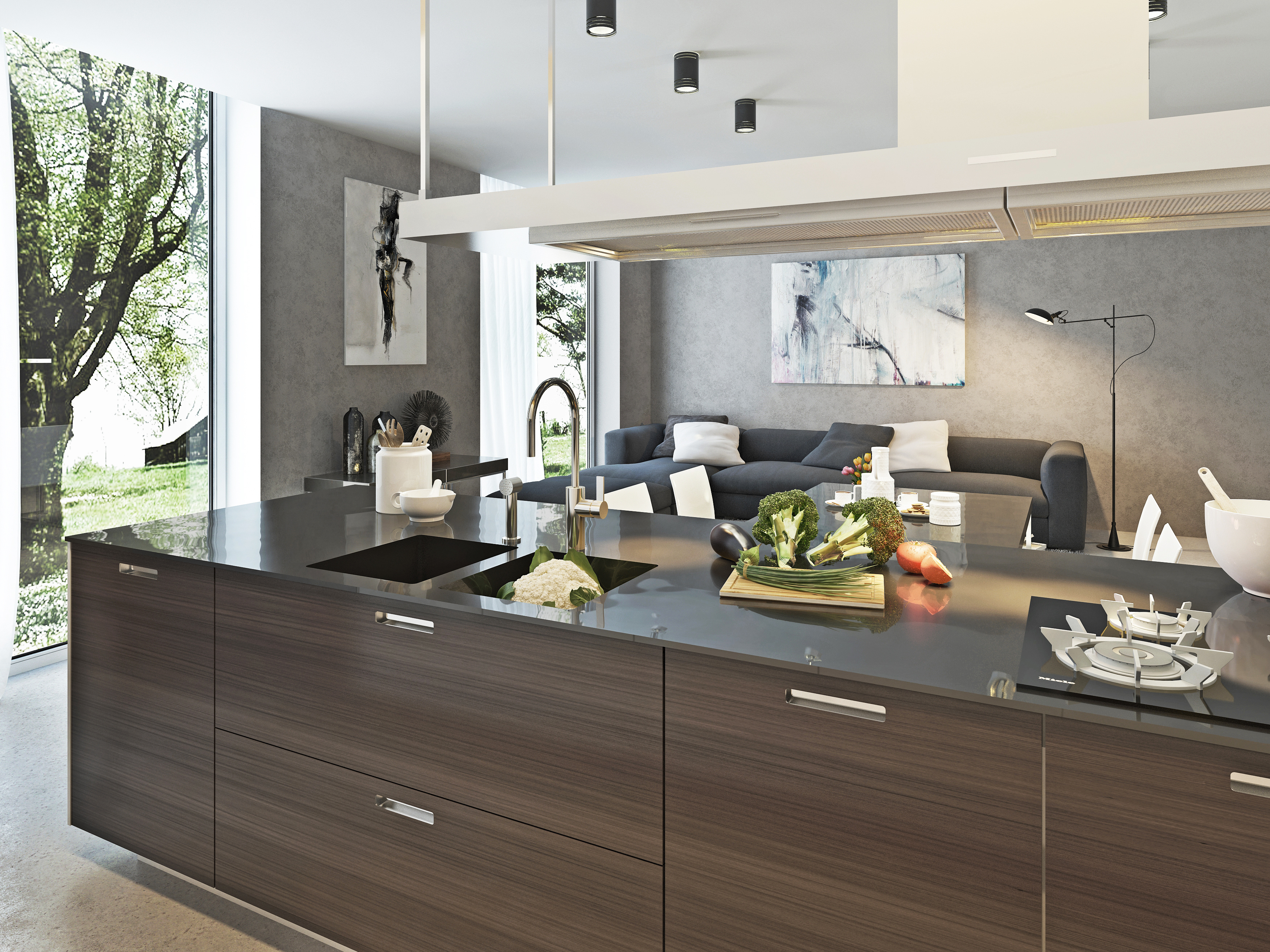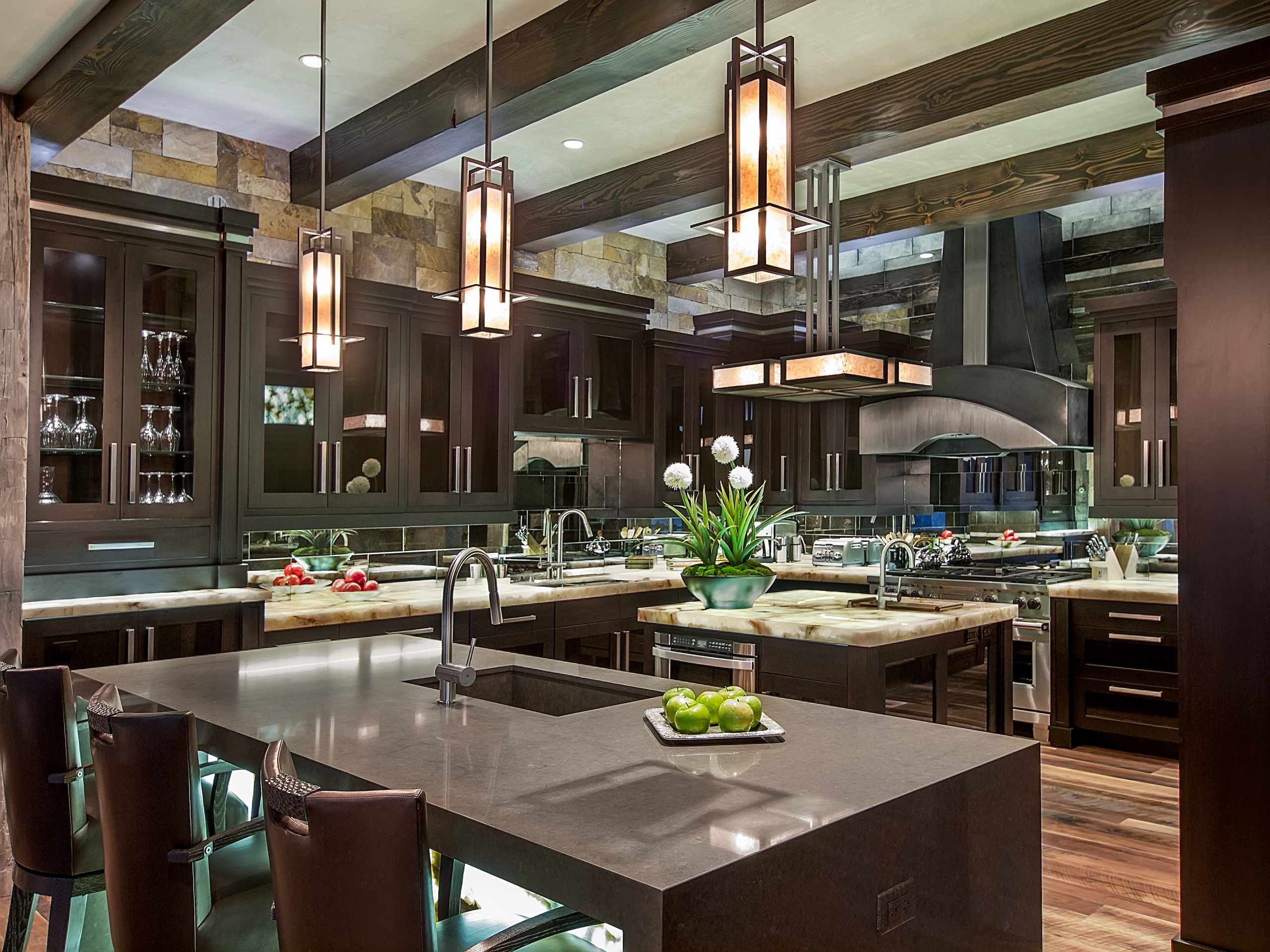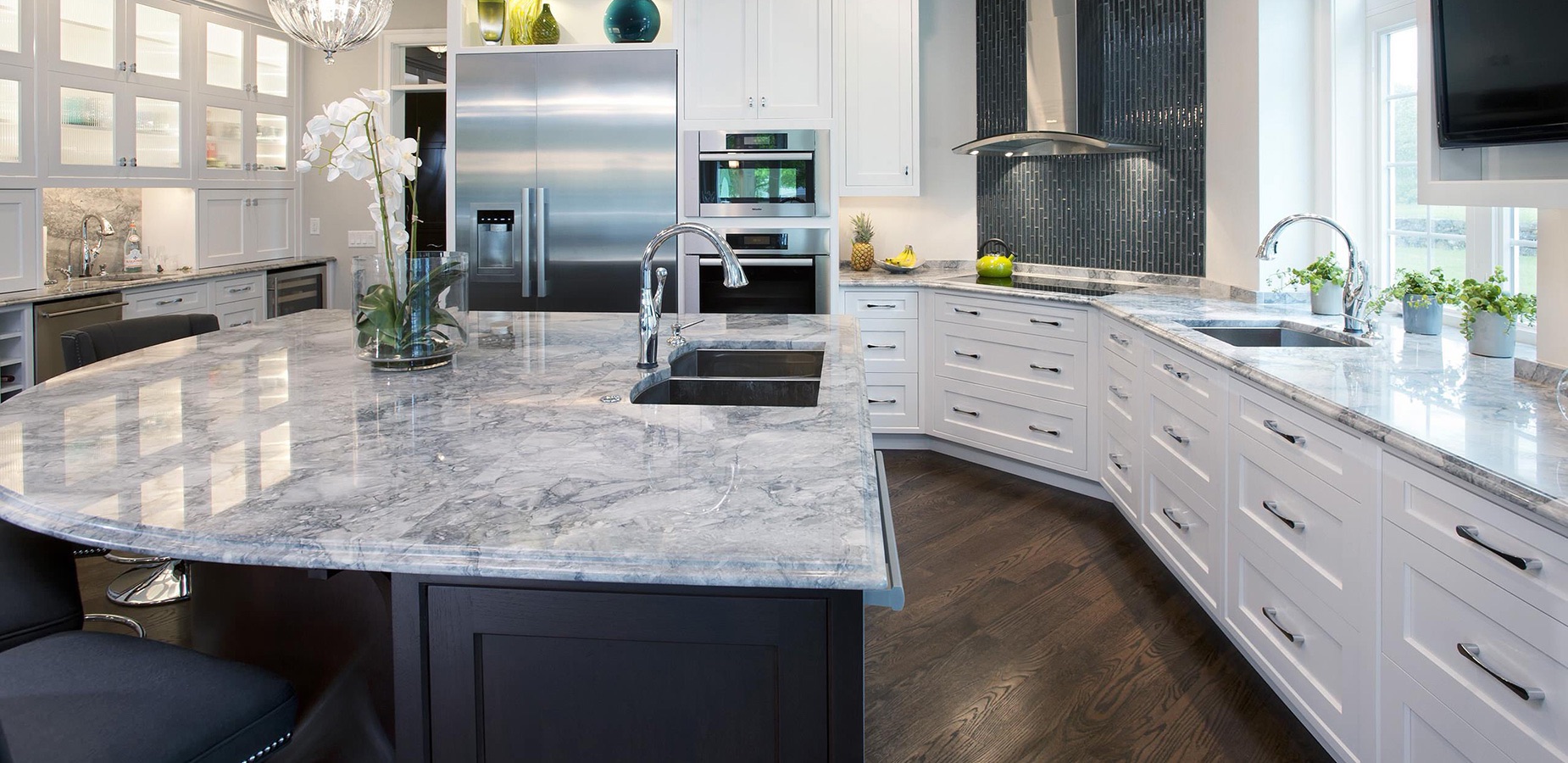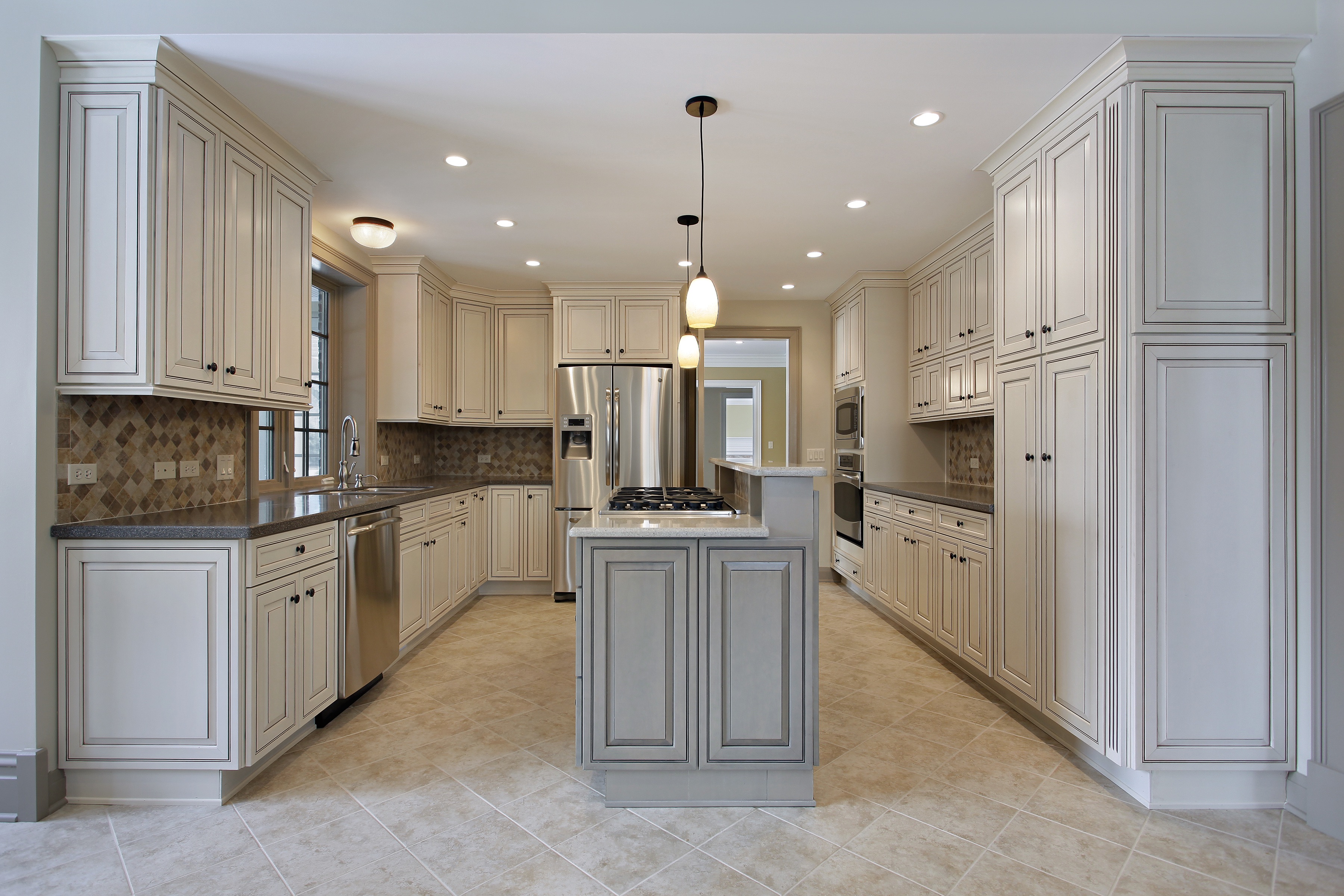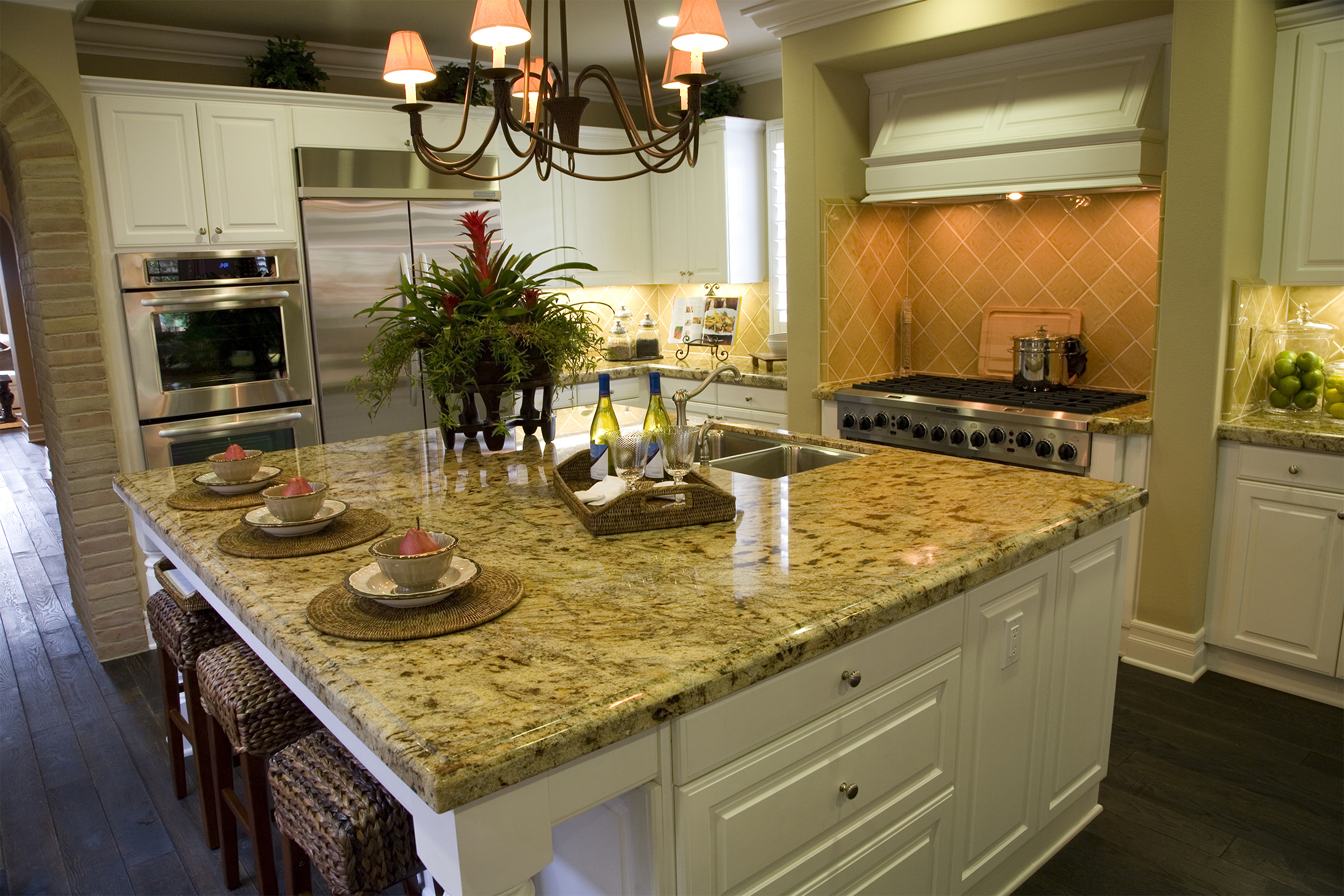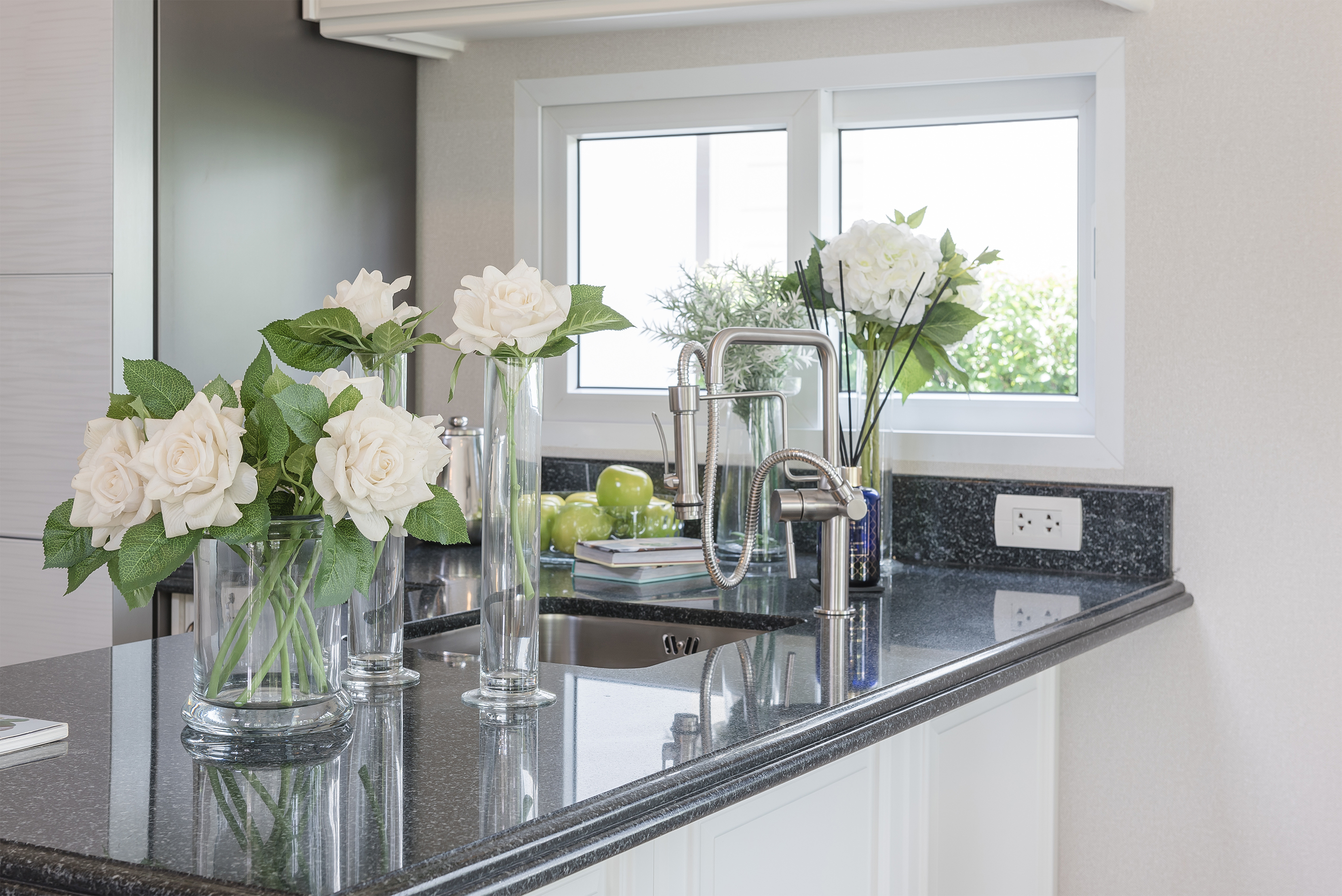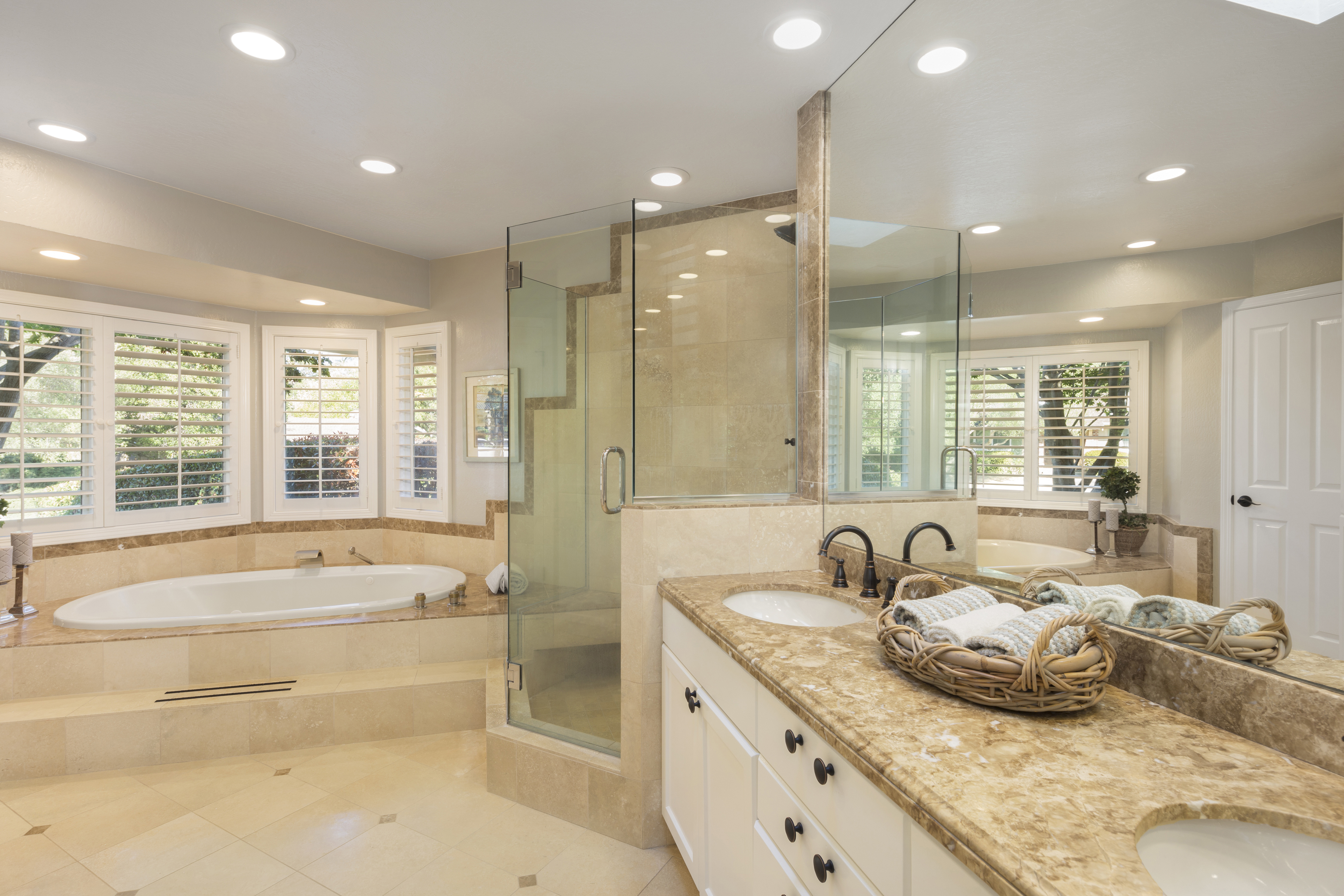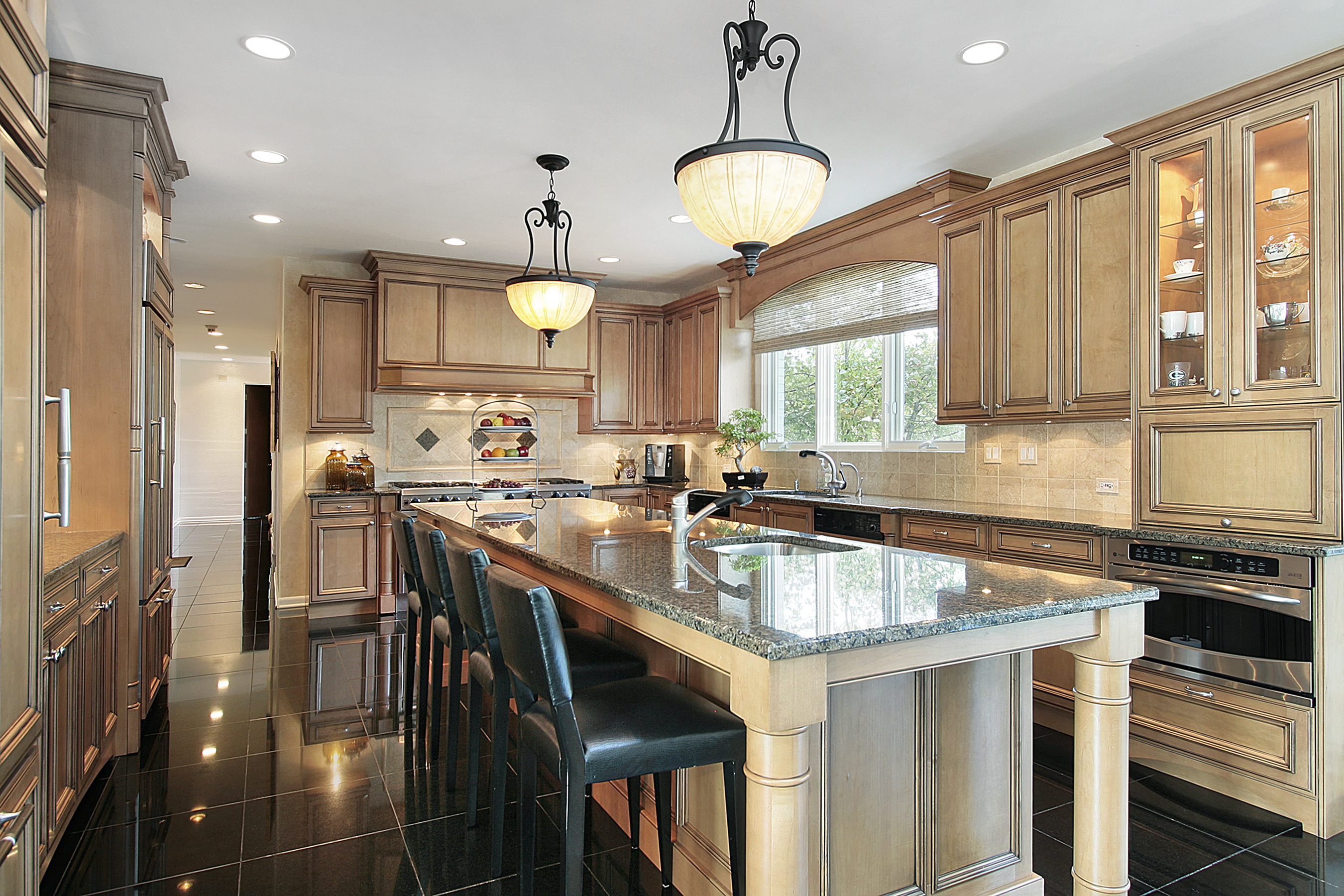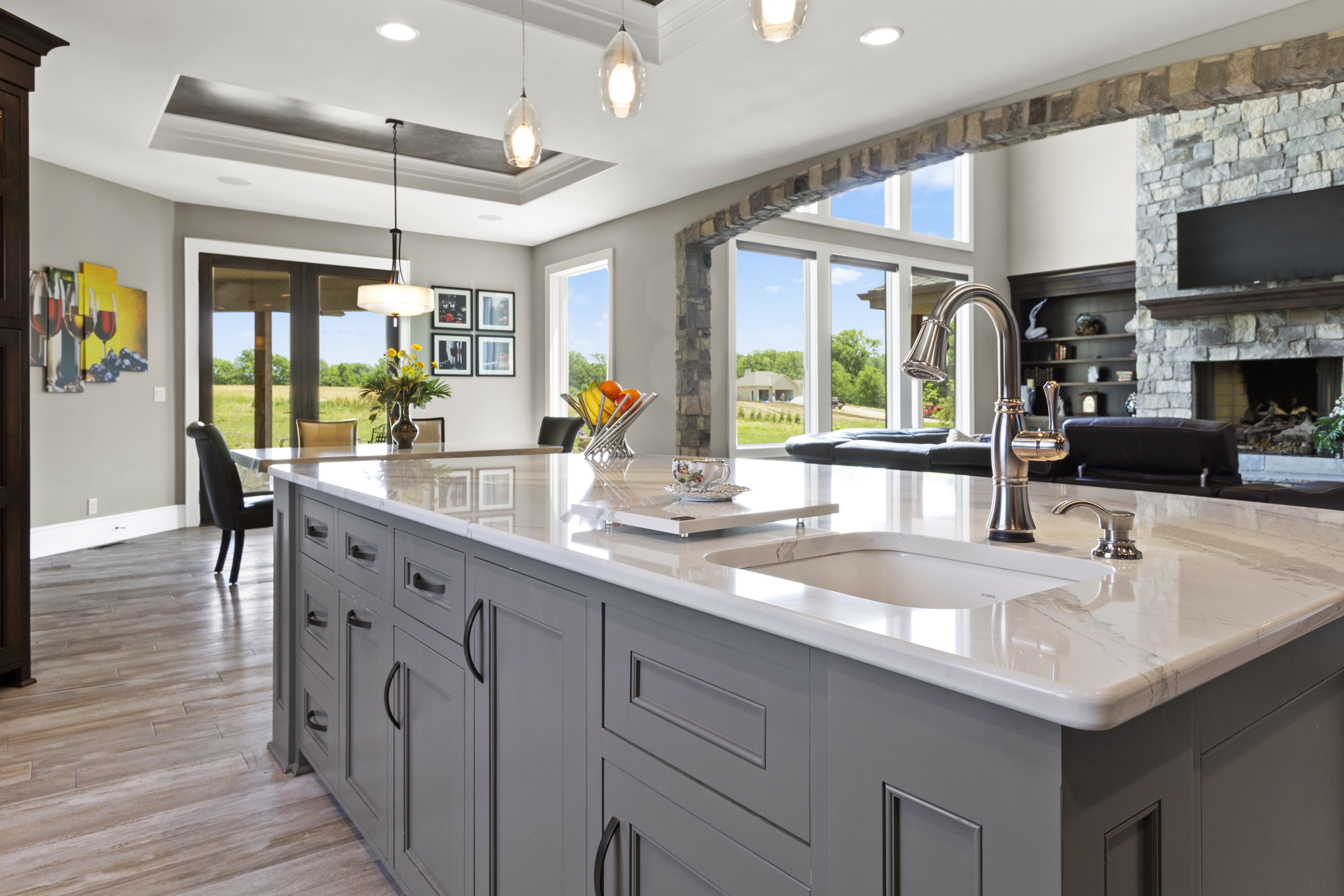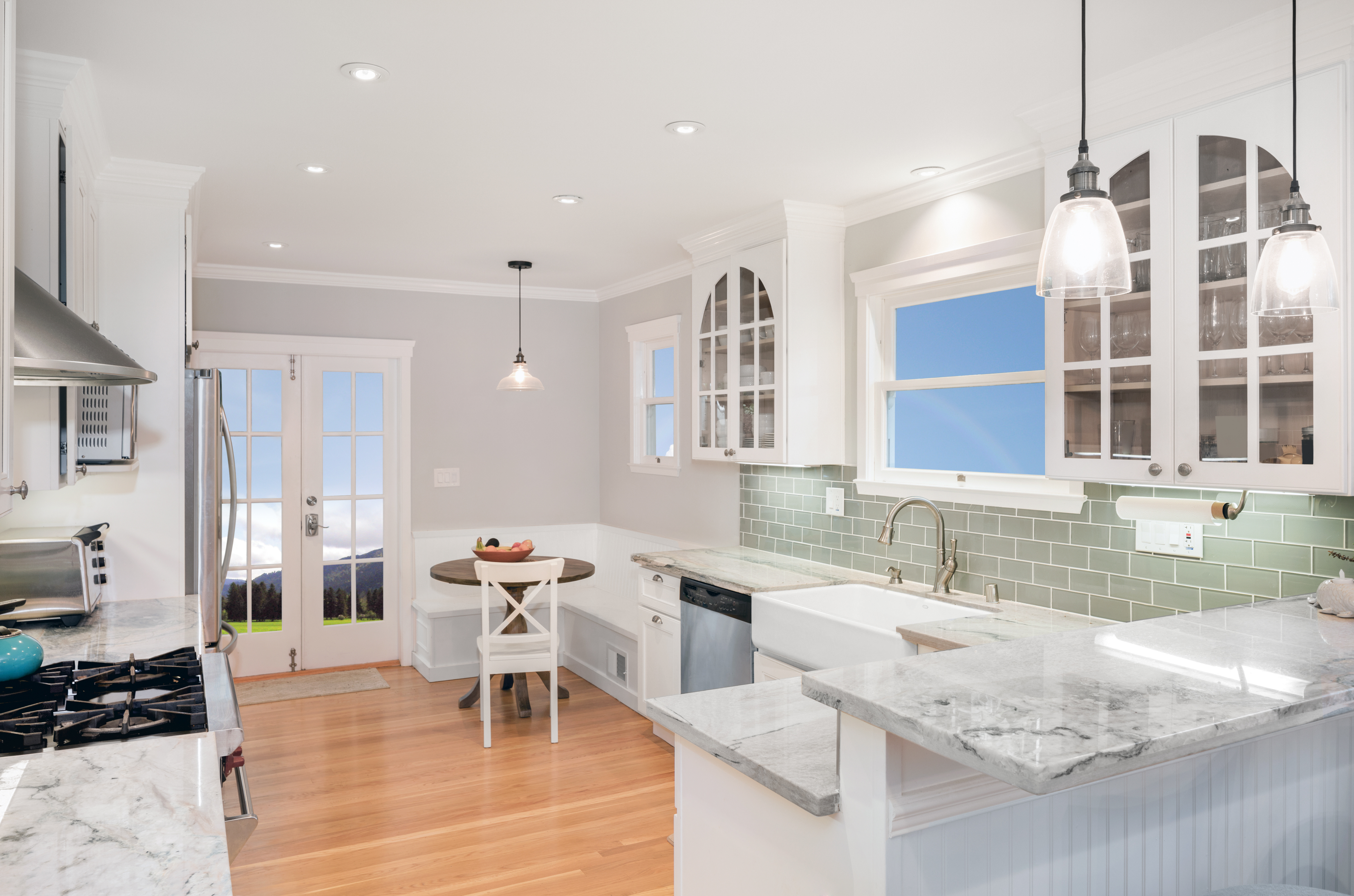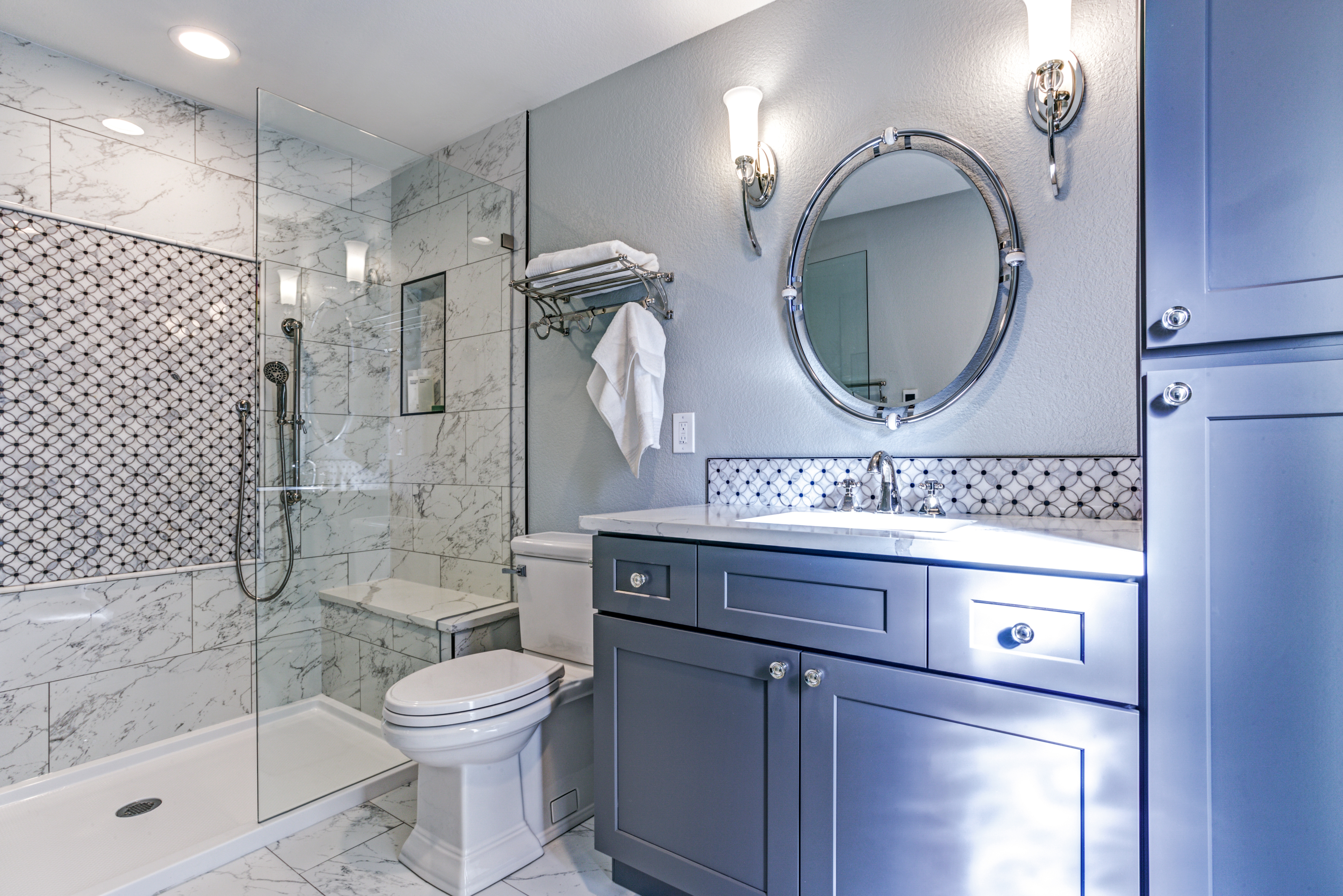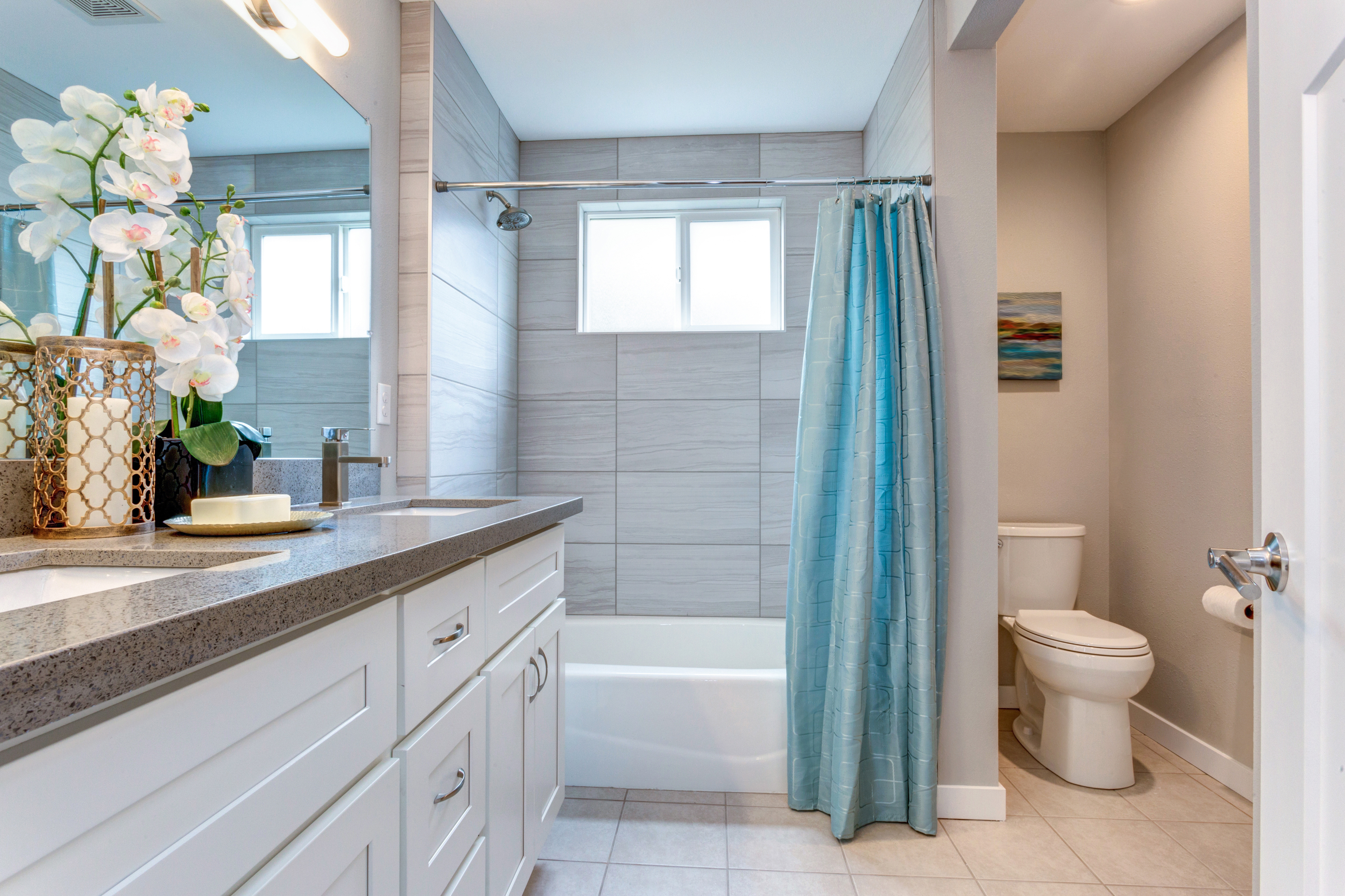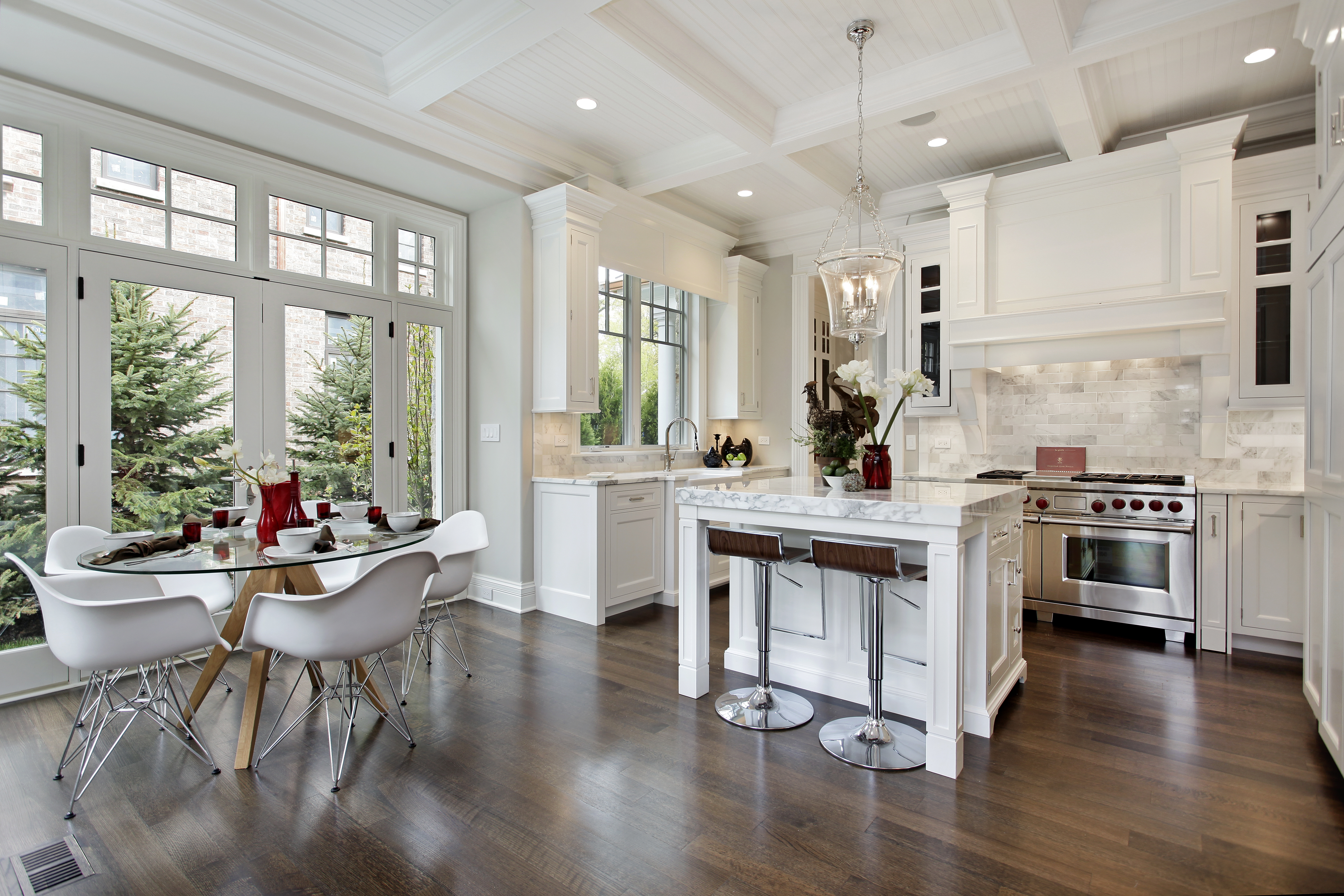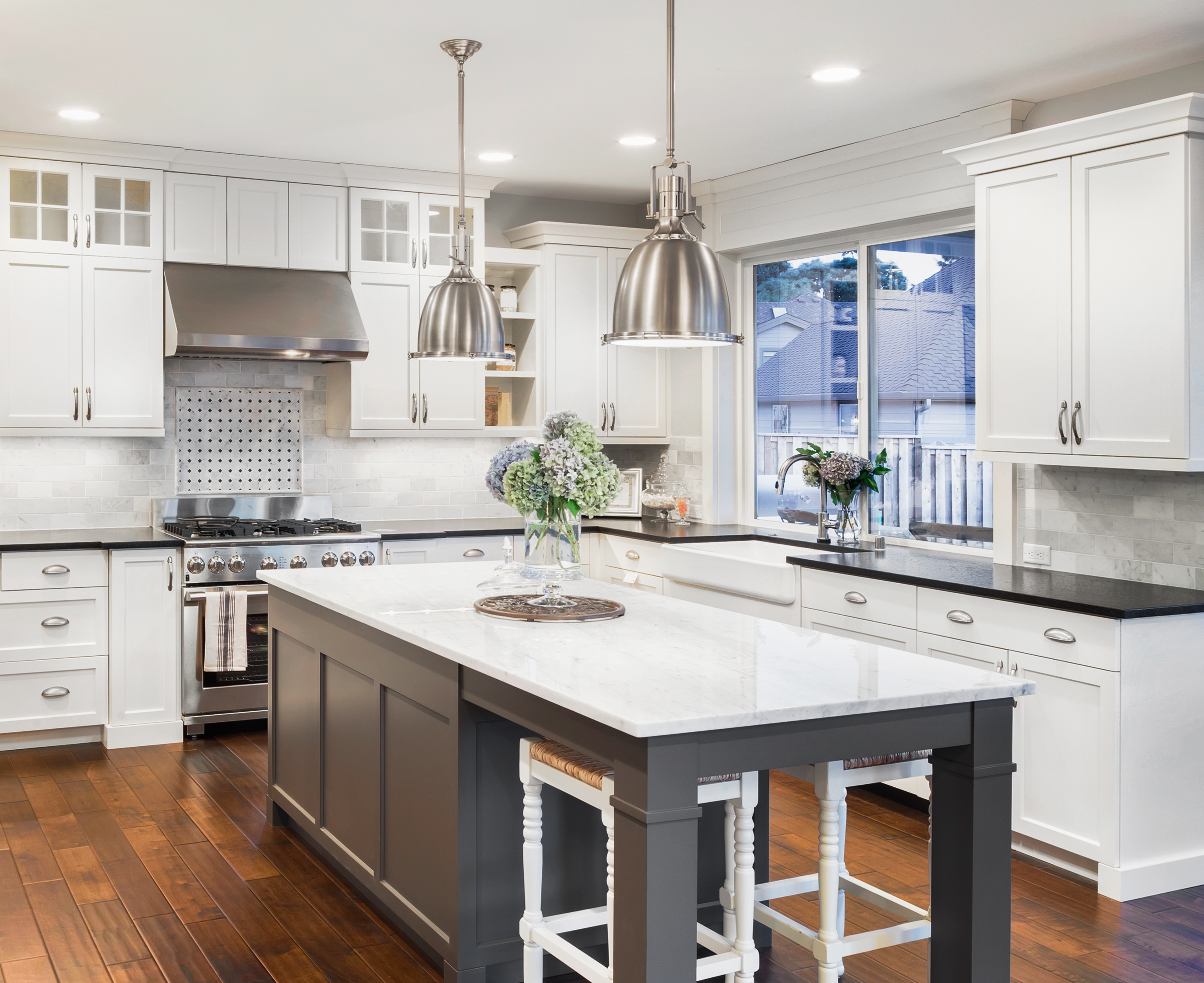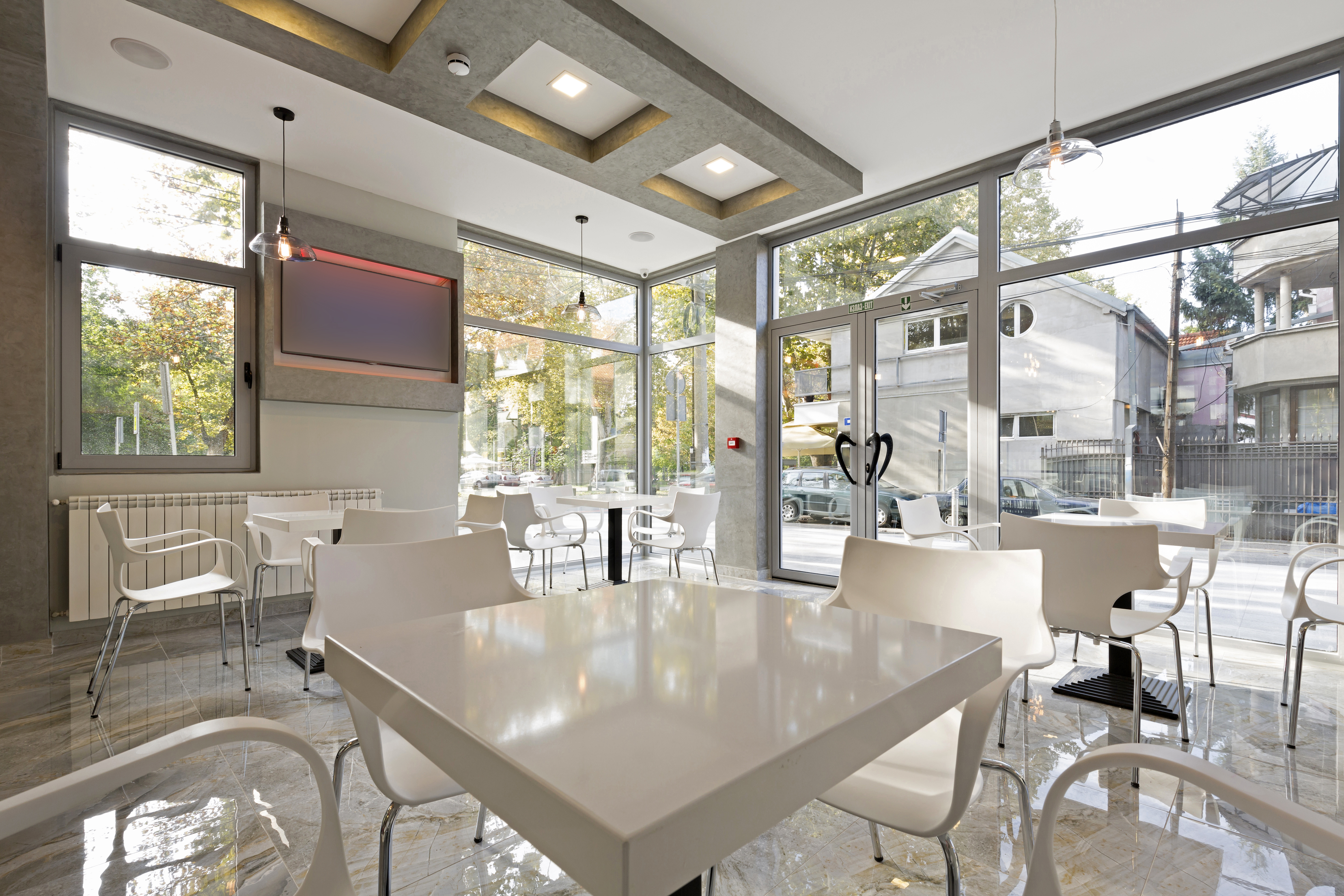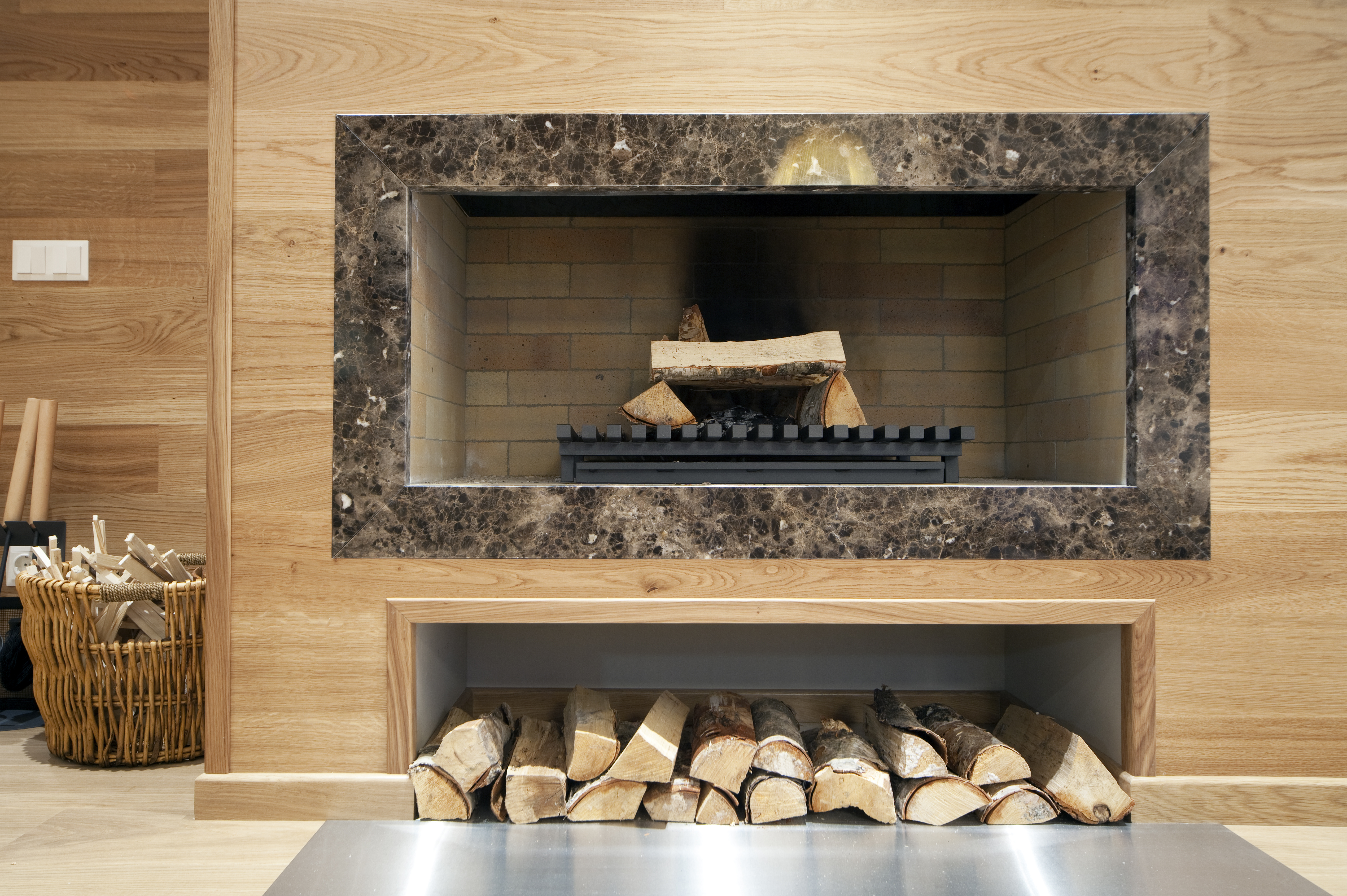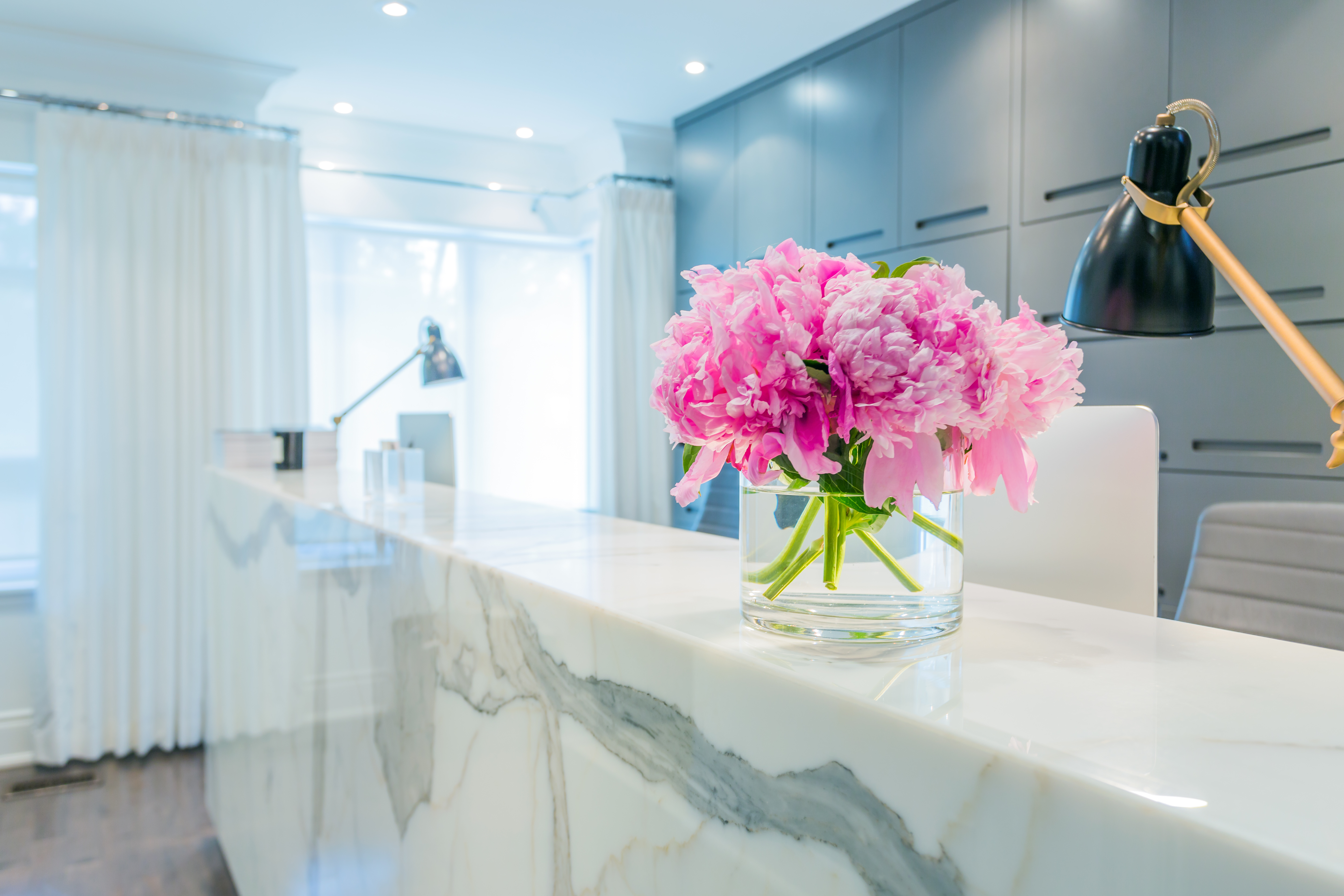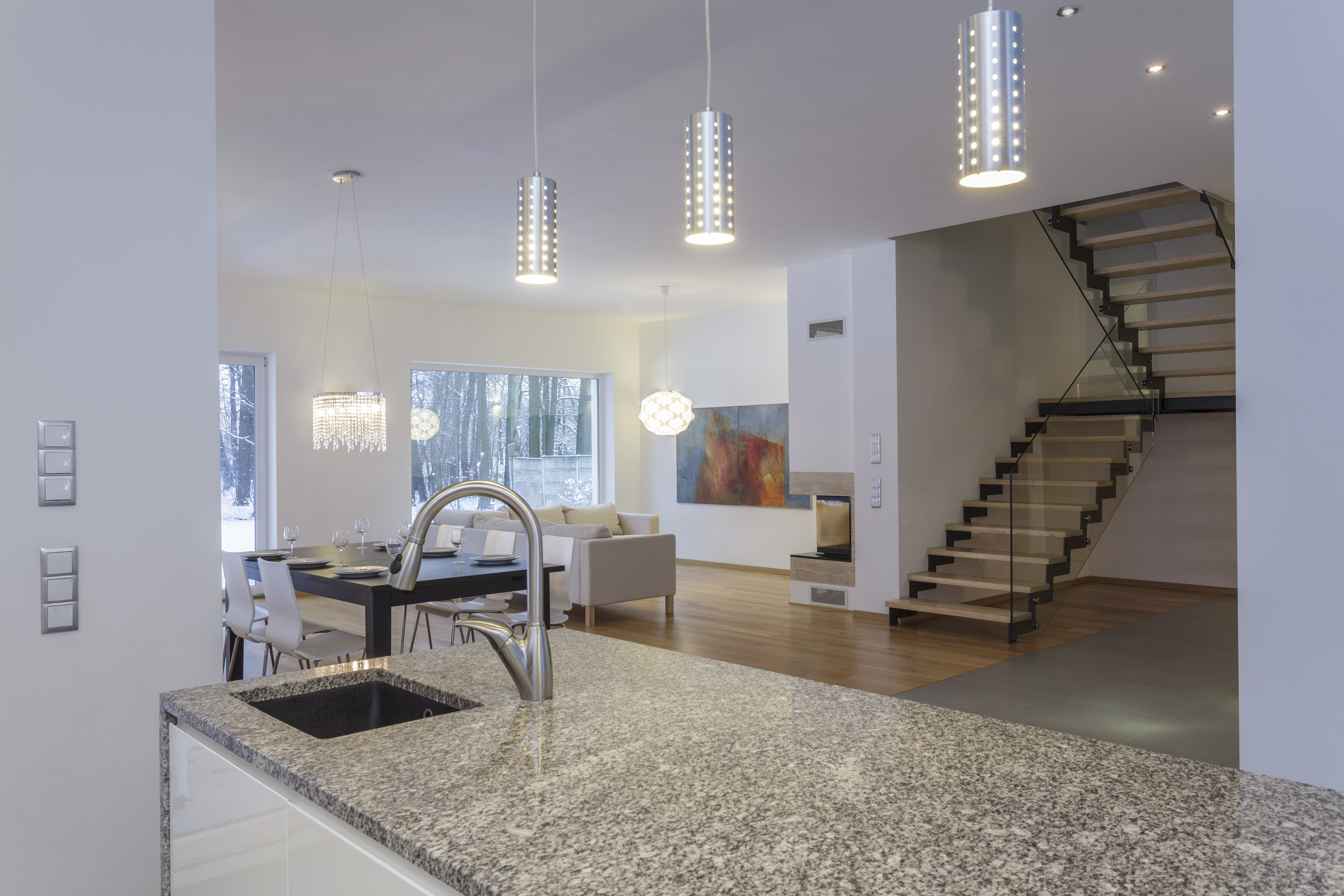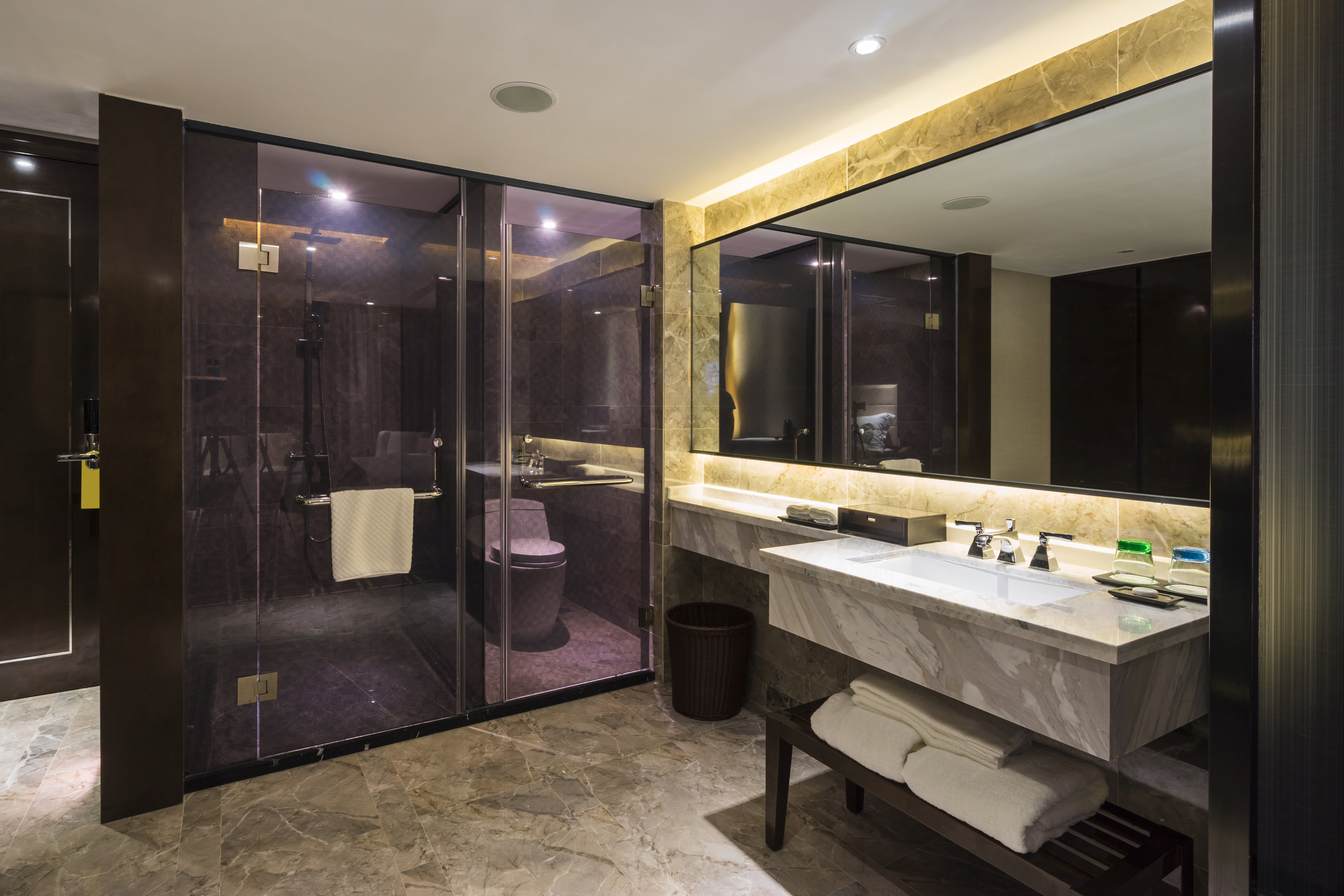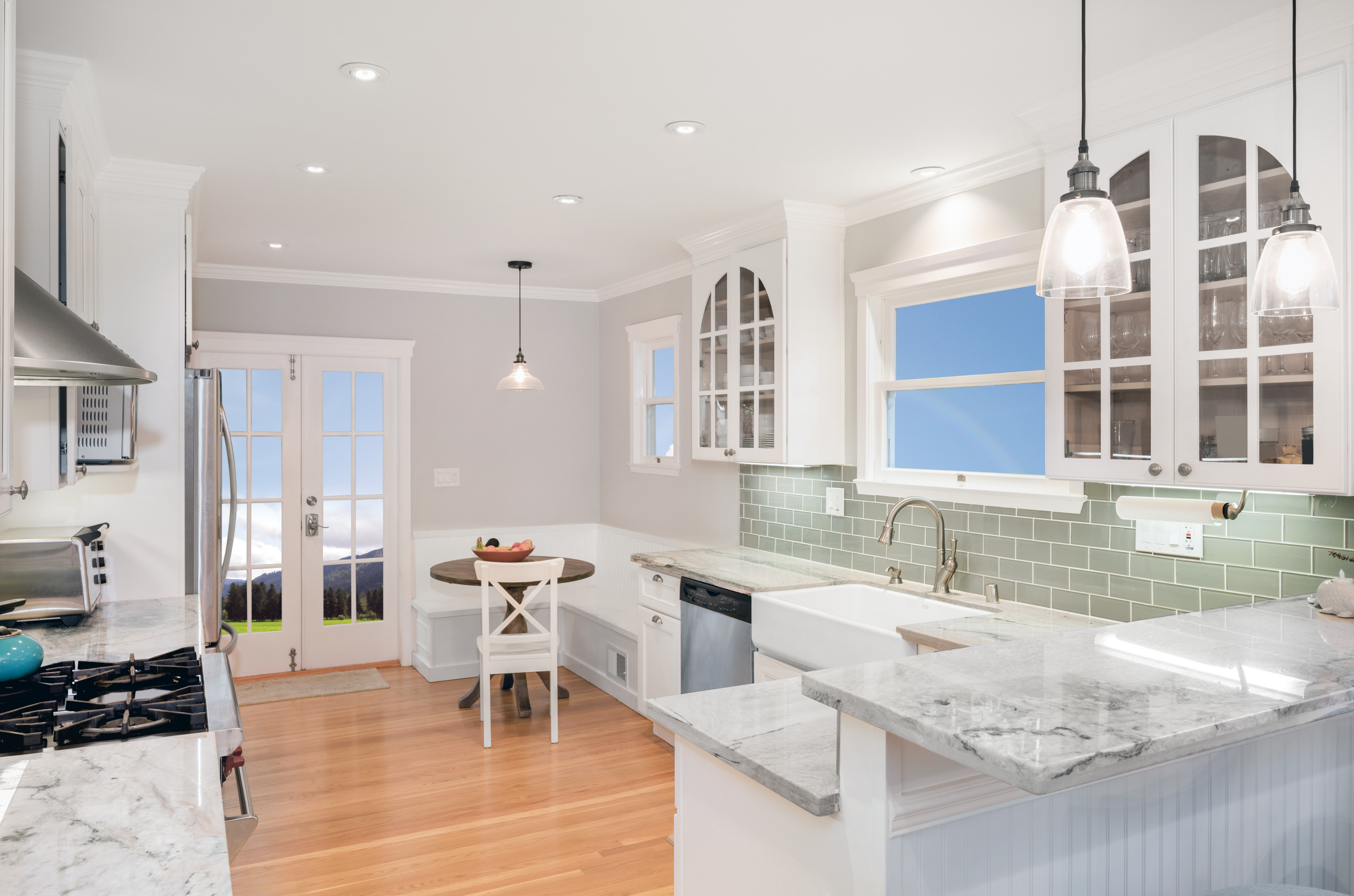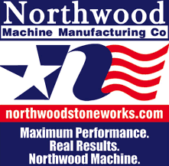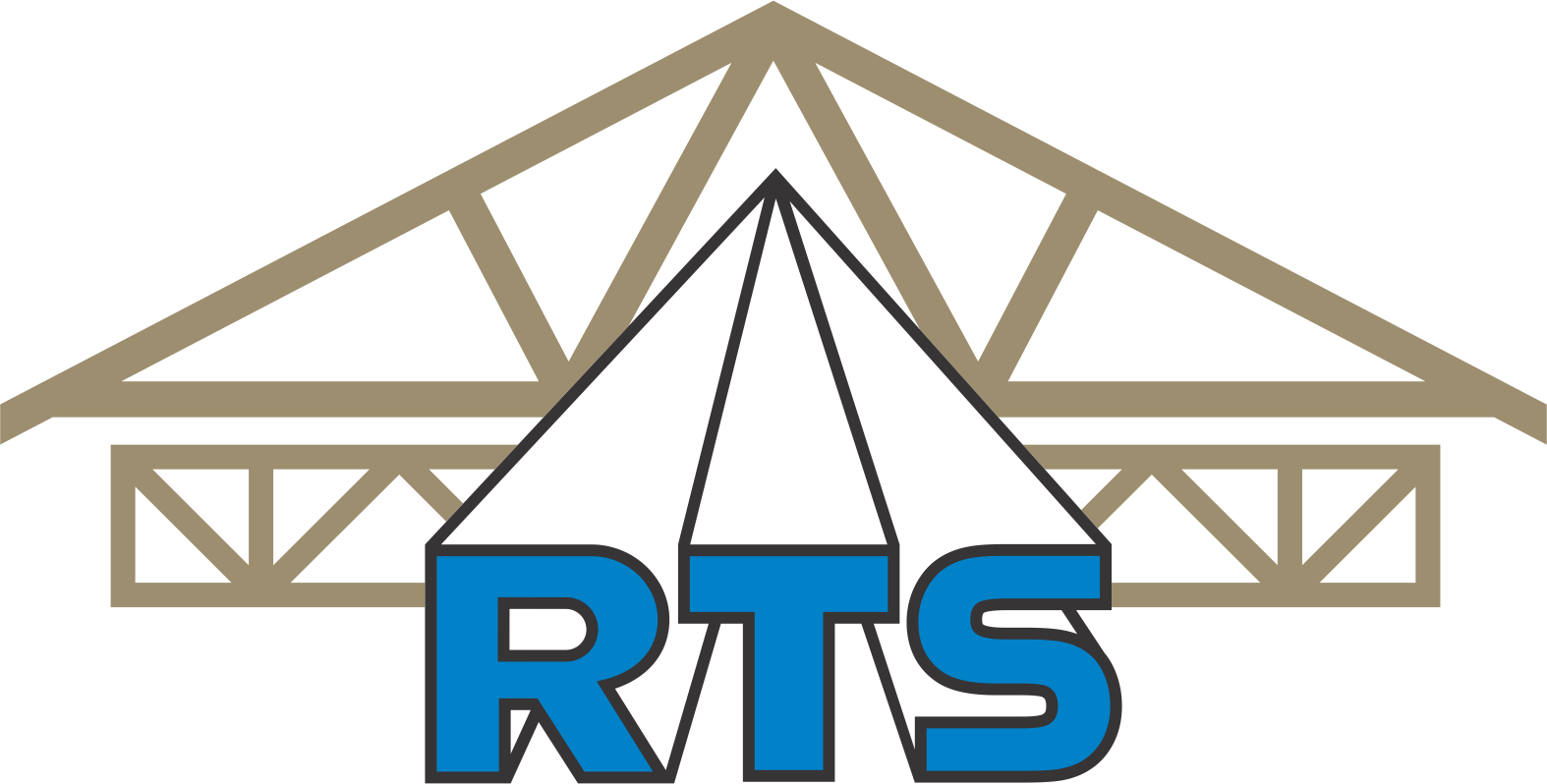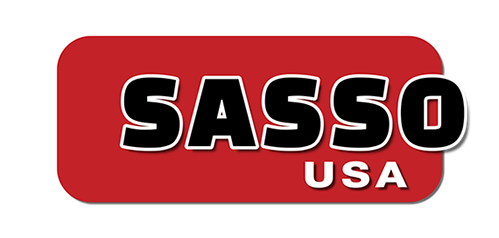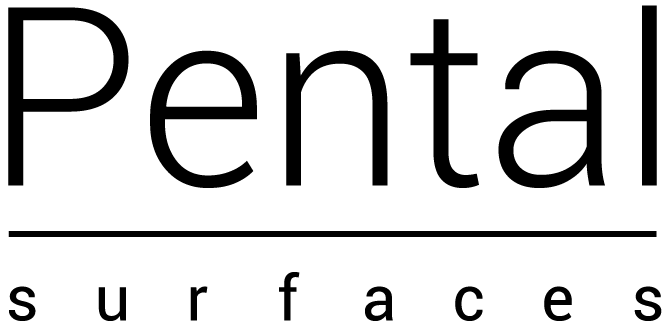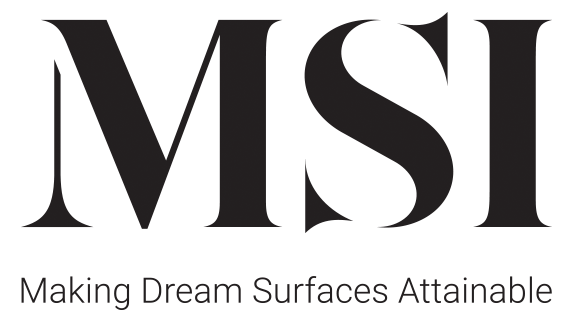There are many options in the market for solid surfaces to be fabricated for use as countertops, vanities, reception desks and other various uses in both residential and commercial spaces. These are a few of the types fabricated in Xact Stone shops on a regular basis.
Granite
Granite has been the countertop material of choice because it provides a refined elegance for years. Even when used in modest settings it seems to provide a sense of luxury to the space when it is enhanced by the beauty of granite.
Historically, granite has been an expensive material, however it has come down in cost and demand as engineered stone has become more common.
Pros
- Almost impervious to heat
- Very strong and durable
- Adds real estate value
- 2,500 colors and types available
- Mostly maintenance-free other than treating with sealer
Cons
- Somewhat expensive
- Often slabs have imperfections
- Can crack if handled incorrectly or improperly installed
- Stone is porous and tends to stain if not sealed properly
Soapstone
Soapstone has seen a resurgence as an alternative to granite. Over time, soapstone tends to take on an antique-like patina that can be very attractive. Contrary to expectations, the architectural soapstone used for today’s countertops is actually very hard and resistant to stains. However, it will tend to scratch over time, which adds to the antique patina of the stone.
Pros
- Deep, rich color
- Somewhat stain resistant
- Fairly impervious to heat
- Damage can be sanded out
- Offers antique, historic look
Cons
- Has a tendency to darken over time
- Must be treated with mineral oil
- Surface can scratch and chip
Marble
Marble is a natural stone commonly used for countertops. Because no two slabs of marble are exactly the same, each surface is entirely unique.
Although highly prized, marble may not be the best choice for many solid surfaces, because it has a history of staining and scratching. Proper sealing can reduce the maintenance on marble, but this temperamental stone typically has very selected applications unlike granite and other solid surface materials.
Pros
- Waterproof and heatproof
- Adds to real estate value
- Unique veining
Cons
- Expensive
- Repairs are difficult
- Scratches rather easily
- Stone is porous and stains easily
- High maintenance
Quartz (Engineered Stone)
Quartz is a man-made or engineered stone that contains an extremely high percentage of quartz particles and other minerals, combined with resins and poured into slabs.
This product is produced by companies such as Cambria, and Silestone who created it as an alternative to granite and marble. It is now available in a larger array of colors than granite and has a nonporous surface that resists scratching and staining. Over the past few years these companies have developed beautiful copies of natural marble, with similar veining. But, unlike actual marble, engineered quartz requires very little maintenance and no sealing.
Similar technology is now being used to create glass countertops, which consist of particles of recycled glass blended with resins and then shaped into slabs.
Pros
- Easy to maintain, no sealing required
- Slabs are uniform, with no imperfections
- Can be custom fabricated in any size and shape
- Resists stains and is impervious to heat and acid
- Better overall appearance than solid surfaces such as Corian or Swanstone
Cons
- Somewhat expensive material
- Weight – material is very heavy
Alternative Solid-Surface
Solid-surface material sold under brands including Avonite, and Corian, which are man-made materials using acrylic particles and resins that are pressed into slabs as well as other shapes. These solid-surface materials have been available in the market for decades, however, early on they were considered to be space-age alternatives to natural stone.
Once considered to be a premium alternative, solid-surface materials are now considered a mid-tier choice. It can be used in conjunction with higher end surfaces such as granite or quartz to reduce cost.
Pros
- Resists staining
- Seams are virtually invisible
- Damage can be easily repaired
- Available in numerous colors and patterns
Cons
- Fairly expensive
- Vulnerable to damage from heat



